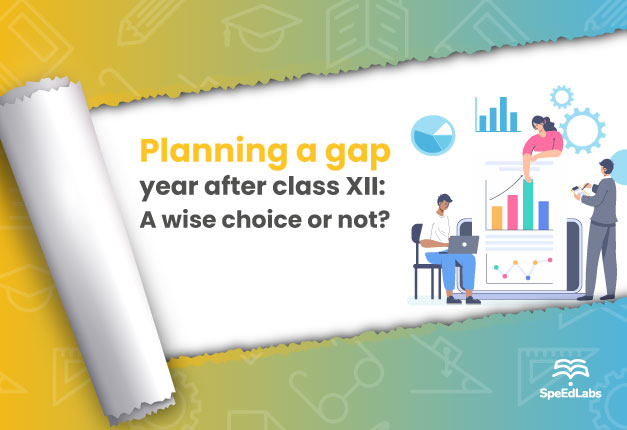The most important part of a drop year is determination!
Class 12th and beyond!
Class 12th is the changing phase for any individual, and hence, it is crucial to study efficiently and with full attention in class 12th. After class 12th, the future of any student starts taking shape as he decides which career choice to pursue. If you are taking your class 12th seriously, numerous opportunities are available.
Drop year after class 12th: Is it relevant?
After completing their 12th grade, many fantasize about attending different institutions. Some aspire to study at prestigious engineering institutions such as IITs, while others aspire to study medicine at institutions such as AIIMS, and the remaining ones pursue alternative options. But all these colleges have their entrance exams, and as a result, the competition is very high.
Due to this, many students face a dilemma between class 12th boards and all these competitive exams. They find themselves helpless and try to ignore either of the two. Ultimately, they focus on board exams and either compromise with their dream college or take a year drop to study from scratch. But is this the only solution? Is taking a drop year effective? Or other alternatives are available? This blog is all about gap year and whether it is a wise choice or not?
Someone has rightly said ‘grass is always greener on the other side.’ Students find this drop year alternative very easy, and they think that they will be able to study day and night without any problem. But honestly speaking, this is not the reality. Numerous distractions are there, like social media, social gatherings, etc., along with excess peer pressure. Furthermore, some students acquire an inferiority complex when they see their classmates attending one college or another. So, if you are planning for a drop year, think twice as it is not as easy as it seems to be.
Instead, you can opt for an adaptive practice at the beginning of your higher classes so that you won’t face any need for a drop year.
But what is an adaptive practice or learning? Adaptive learning is a form of instructional technology that provides reinforcement that adjusts to each student’s specific problems. Now let us understand some of the benefits of the adaptive practice, which are below:
- Your confidence boosts to the next level: Try to be motivated from the beginning of class 11th itself. Do not wait for class 12th as all the competitive exams cover the syllabus of both classes (11th and 12th). Studying methodologies can’t be the same for two students hence do not compare yourself with others and stay focussed. All this with consistency will help you with confidence, and once you develop this good habit, no one can stop you.
- You develop a strategy: Try to maintain a decent relationship with all the teachers. Teachers can help you a lot in developing an approach with the help of their experience. Ask your doubts, and never hesitate to ask again because every question is important. You can take the assistance of your teachers to plan a strong strategy for both boards and competitive exams and how to manage both of them simultaneously. Since every approach is different from others, this again lies under adaptive practice.
- Engagement: Last but not least, the level of student participation rises. When a student sees an academic environment around him, he will be inspired to study more, which will help more learners achieve their objectives and respective dream colleges.
Below are some of the tips for studying well and for avoiding drop year:
- Avoid destructive use of social media and use it for study purposes only.
- Never skip NCERT’s. Make sure you read them thoroughly because questions are frequently posed directly from these books.
- Stick to a single strategy and change it only when you feel like you are not getting results in mock tests.
- Do not waste a single second. Study in your free lectures as well in place of spending time with your friends.
- Make short notes and revise them whenever you get time.
- Avoid skipping your school or coaching classes.
- Work according to a timetable and find adequate time for self-study as well.
- If you face difficulty at any point in time, contact your teachers or mentors. The subject experts and mentors are always available at speedlabs.in
- Group study is beneficial but only provided there is no time wasted.
- Numericals should be the top priority, and one must practice them regularly.
- Avoid abandoning your board exams at all costs, and prepare for them as well, because your Class 12th marks are beneficial in the future.
It was all about the tips for better study. Let us now look at the viewpoint of toppers and their habits:
“Board examinations primarily assess your knowledge, whereas IIT JEE questions assess your ability to apply that information. Boards are easy if you acquire knowledge with clear concepts. JEE Main and JEE Advanced demand more practice, speed, precision, and time management abilities, as well as the use of a variety of outcomes and methods”, said a JEE Topper.
Hence, top performers place a greater emphasis on time management and precision when working at a fast pace, and this must be kept in mind.
Key Takeaways
Taking a drop year or not is an individual’s personal choice. But, if you are taking one, ensure that you do not waste your time by procrastinating. Take care of any distractions and study well for your dream college.
Also published on Medium.
